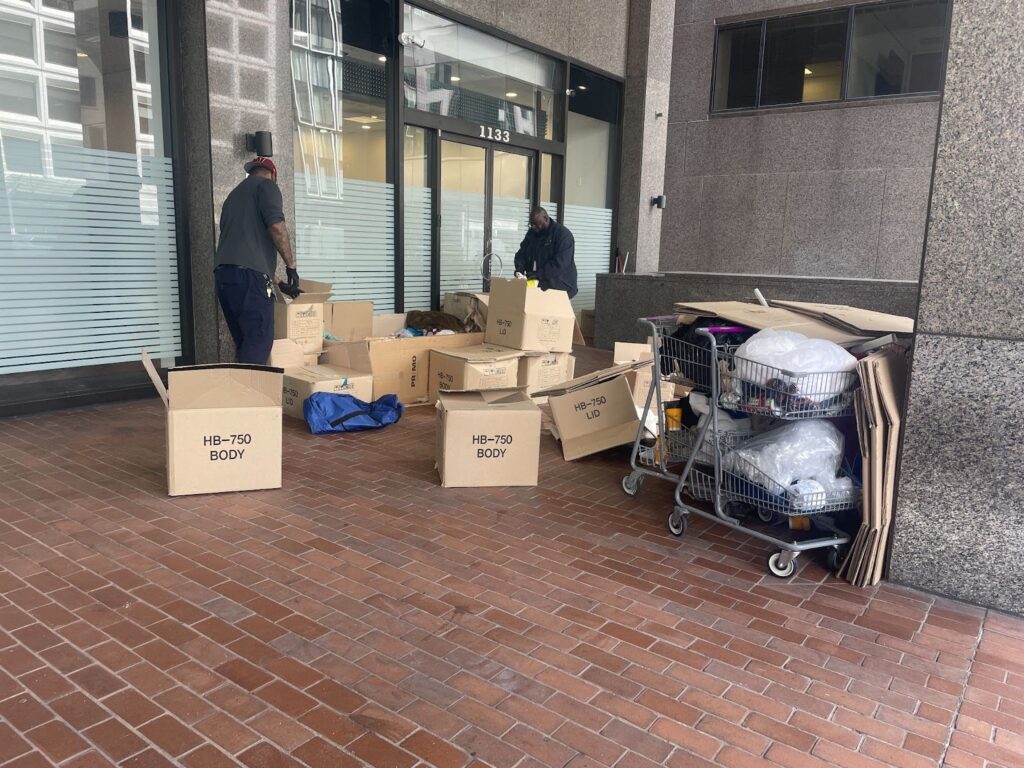A D.C. city council decision to delay cuts to welfare benefits and give struggling beneficiaries more time to rebuild their lives won praise from advocates gathered for the Mar. 5th “State of the District’s Poverty” forum.
The move will allow long- term recipients of Temporary Assistance For Needy Families or (TANF) to receive assessments under a city program geared toward moving poor residents from welfare to work.
Forum participant Momauwi Woods, a homeless mother living at the city’s DC General shelter said cuts in TANF benefits that had been scheduled to go into effect April 1, would have made it more difficult for poor parents to care for their children and in some cases, leave the shelter system.
“We believe in rights, we believe in responsibilities. We want to work. We need you to get behind us and get us out of [DC General]. We want a home. We are not lazy, we are tired,” said Woods, a panelist at the forum hosted by the nonprofit DC Fair Budget Coalition and held at the District’s Wilson Building.
In 1996, President Bill Clinton signed the welfare reform law act and in 2011, the District of Columbia implemented a 60-month lifetime limit on welfare benefits. More than 6,000 families on welfare for more than five years saw their monthly stipends cut by 20%. The affected households were a family of four with the average payment of $523 cut to $418. In 2011, the District of Columbia implemented a 60-month lifetime limit on welfare benefits, similar to measures put in place by many jurisdictions years ago after President Bill Clinton signed the 1996 welfare reform law. After the District limit took effect, more than 6,000 families who had been on the roles for more than five years saw their monthly stipends cut. For affected households, the average monthly payment for a family of four went from $523 to $418.
The council acted last fall and again on Mar. 5th to grant a six-month benefit extension out of concern for the children. Poor parents are able to receive case management and job readiness placement services under the city’s redesigned welfare-to-work program during this extension. Out of concern that children were being adversely impacted by the cuts, the council acted last fall and then again on March 5 to grant six-month benefit extensions while poor parents receive case management, job readiness and placement services under the city’s redesigned welfare-to-work program.
“We have to reduce poverty! We’re gonna reduce poverty!” said Councilmember Marion Barry, one of several council members who joined in to welcome participants to the “State of the District’s Poverty” event.
The forum also addressed problems with the city’s system for helping homeless families. The District’s family shelter, which operates out of a former hospital building, currently houses more than 200 families, including approximately 600 children. Conditions at the shelter are far from ideal, but preferable to the streets. Panelist, Nkechi Feaster, who like Woods stays at the shelter, said she waited three months to get a room there. Families such as Woods’ and Feasters’ in need of help often make repeated visits to the city’s Virginia Williams Family Resource Center, the only center available for families requesting emergency housing in the District of Columbia.
The pressures on families and the system intended to serve them have increased since the recession began, said DC Fiscal Policy Institute Executive Director Ed Lazere. He said currently one in three children and one in five adults live in poverty in the District. Beyond extending welfare benefits, the city needs to take additional steps to help its most vulnerable families escape homelessness and move up the economic ladder, according to Lazere. He said that in the budget for Fiscal Year 2014, the city should spend more to support affordable housing, job training and child care.
Tax reform is also necessary according to panelist Keshini Ladduwahetty, member of the group DC for Democracy. She produced a chart showing that currently, the wealthiest city residents, those earning more than $250,000 a year, are taxed at roughly the same 7 percent rate as those earning less than $20,000 a year. She said the regressive tax structure puts the poor at a further disadvantage and makes it harder for them to improve their lives.
Aaron Brooks, owner of Power to Become, Inc., spoke of his efforts to meet the needs of working poor parents and children even as child care subsidies have been reduced. He said the city needs to streamline the application process for childcare vouchers and increase its investment in childcare subsidies.
“We cannot continue to subjugate the impoverished,” stated Brooks, “There is no possibility that this city can continue to function like this.”







